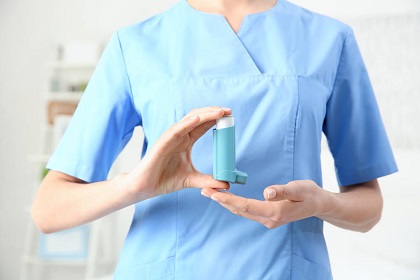Search
Related Articles

How to use Accuhaler
Step 1: Open• Hold your Accuhaler in one hand with the dose-counter
How to Use a Metered-Dose Inhaler and a Spacer
WHAT YOU NEED TO KNOW:What is a metered-dose inhaler and a spacer?A
Athletes’ Cardiorespiratory Functional Assessmen
Have you ever felt discomfort during exercise like shortness of brea
What is croup? Croup is a respiratory infection. It causes your throat and upper airways of the lungs to swell and narrow. It is also called laryngotracheobronchitis. Croup is more common in children, but adults can also get it.
What causes croup in adults? Croup is commonly caused by a virus. It is common during the common cold season. Croup is spread by breathing in germs from infected people when they cough or sneeze.
What are the signs and symptoms of
croup in adults? Croup begins like a cold with cough,
fever, and a runny nose. Your symptoms usually remain mild during the first 2
to 4 days. After that, the following symptoms get worse at night or when you
lie down:
• A harsh or barking cough
• Noisy or whistling breathing
• Hoarseness
How is croup diagnosed? Your healthcare provider will ask you about recent cold symptoms. He or she will listen to your lungs. Your healthcare provider may recommend a neck or chest x-ray to make sure you have no other conditions.
How is croup treated? Treatment
can usually be done at home. Your healthcare provider may recommend any of the
following:
• Medicines, such as acetaminophen, steroids, and NSAIDs, may help with a fever. Ask your healthcare provider what cough medicine may help with your cough
• Rest and keep calm as much as possible. The stress hormones can make your cough worse
• Sit in a steam-filled bathroom. Turn the shower on. Close the door and sit in the bathroom for about 15 to 20 minutes. Do not get into the shower
• Use a vaporizer. Use a vaporizer next to your bed to help decrease your cough at night
• Drink warm liquids. Warm liquids will soothe your throat and help with your cough
How can I prevent the spread of croup?
• Wash your hands frequently to prevent the spread of germs to others. Use soap and water. Use gel hand cleaner when soap and water are not available. Wash your hands after you use the bathroom, cough, or sneeze. Wash your hands before you prepare or eat food
|
|
• Cover your mouth when you sneeze or cough. Sneeze and cough into a tissue or the bend of your arm. If you use a tissue, throw it away immediately and wash your hands
• Do not share cups, silverware, or dishes with others
• Stay home if you are sick
When should I seek immediate care?
• The skin around your mouth or fingertips turns blue
• You have severe difficulty breathing
• You cannot swallow your spit and begin to drool
• You are severely fatigued
When should I contact my healthcare
provider?
• Your symptoms do not get better or get worse
• You have questions or concerns about your condition or care
CARE AGREEMENT:
You have the right to help plan your care. Learn about your health condition and how it may be treated. Discuss treatment options with your caregivers to decide what care you want to receive. You always have the right to refuse treatment.
© 2017 Truven Health Analytics LLC All illustrations and images included in CareNotes® are the copyrighted property of A.D.A.M., Inc. or Truven Health Analytics.
Click the link for more information on Respiratory Medicine Clinical Service
Click the link for more information on Family Medicine Clinical Service








